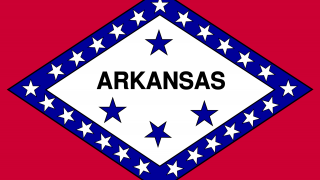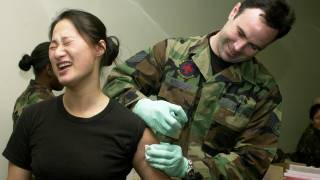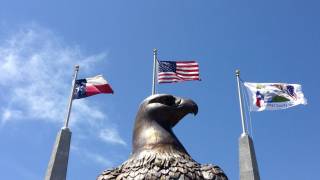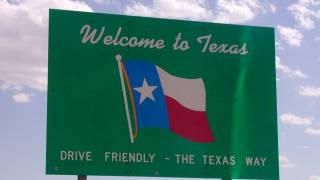Mumps Travel Advice: Delay Traveling on Common Carriers

As the Fall semester comes to a close at the College of Charleston (CoC), it’s Emergency Management Team issued new travel advice to any student currently impacted by the mumps virus.
As of December 18, 2019, the CoC Emergency Management Team (EMT) reported the total number of mumps cases confirmed since September has reached 75 cases.
Furthermore, the CoC said in this digital statement ‘To be clear, there is no scenario under which the College would close campus due to this (mumps) outbreak.’
Previously, the EMT published advice for those who may travel over the winter holiday on December 11, 2019, such as the following:
- The College of Charleston is advising those with active symptoms of mumps or those awaiting the results of a test for mumps, to delay any travel plans on common carriers such as airlines and trains.
- To wear a mask to prevent the potential spread of mumps from respiratory droplets.
- To avoid travel cancellation fees, ask your healthcare provider for a letter stating the need for an isolation period. A doctor’s note from the South Carolina Department of Health and Environmental Control can also be obtained by calling the College’s Public Safety Department at 843.953.5609.
- To continue to self-isolate for 5 days from the onset of symptoms pending confirmation of the diagnosis.
- Students who are self-isolating in residence halls over winter break should contact front-desk staff to arrange meal delivery.
- If you begin experiencing symptoms of mumps while traveling over the winter break, please contact a healthcare provider in the area where you are staying. Tell the healthcare provider you are a student at the College of Charleston and that there is an active mumps outbreak on campus.
The EMT continued saying ‘Those who have never received the measles, mumps, and rubella (MMR) vaccine, are urged to receive the 2-dose series.
For those who have not received the MMR vaccine, they are asked to visit a local pharmacy, urgent care facility or primary care physician.
Once students have completed the 2-dose vaccination, they should bring a copy of the vaccination record to CoC Student Health Services.
In summary, the CoC says ‘As always, there are simple prevention tips to reduce your risk of contracting mumps that everyone should follow, such as regularly washing hands, covering coughs and sneezes, and avoiding activities that could transfer saliva to another person.
In a related mumps outbreak situation, the Arkansas Department of Health (ADH) issued a public health directive on December 11, 2019, requiring all University of Arkansas employees on the Fayetteville campus to be up-to-date with their MMR vaccinations by January 13, 2020.
University employees who are not able to provide documentation of past doses of MMR vaccine have 3 options to comply with this ADH directive, which can be found on this webpage.
This ADH vaccination requirement is related to 32 mumps cases confirmed among the university community since September 2019.
From January 1 to December 6, 2019, there have been 48 states and the District of Columbia reporting mumps infections in 3,252 people. During 2018, there were 2,251 mumps cases confirmed by the Center for Disease Control and Prevention (CDC).
Recent mumps outbreak news
- 17 Additional Mumps Cases At College of Charleston
- How Are East Coast Universities Managing Mumps Outbreaks?
- 15 Active Mumps Outbreaks Reported at US Immigration Facilities
- Under-Vaccinated Children Remain Unprotected From Disease
- Mumps Vaccine Protection Has Issues
- Military Reports Mumps Case on Base
- Indiana University Mumps Outbreak Reveals Waning MMR Vaccine Protection
- Mumps Love Visiting UK and USA Colleges
Under-vaccinations appear to be common for young travelers during 2019.
A recent study published on December 9th found most eligible pediatric international travelers were not immunized against the measles virus prior to departure.
The CDC recommends those born in 1957 or later receive 2-doses of the MMR vaccine unless a medical condition prevents vaccination.
Previously, the CDC approved a 3rd dose of MMR vaccine for people who are at risk because of an ongoing mumps outbreak, such as college students.
Mumps is a contagious disease that may take up to 26 days for a person to show symptoms after they have been infected.
At the onset of a mumps outbreak, patients suspected to have mumps should be tested by RT-qPCR to confirm the mumps virus and rule out other possible etiologies says the CDC.
In the USA, there are 2 vaccines, MMR-II and ProQuad approved for mumps virus protection.
These vaccines are available at many pharmacies and doctors’ offices.
Mumps outbreak news published by Precision Vaccinations.
Our Trust Standards: Medical Advisory Committee

























